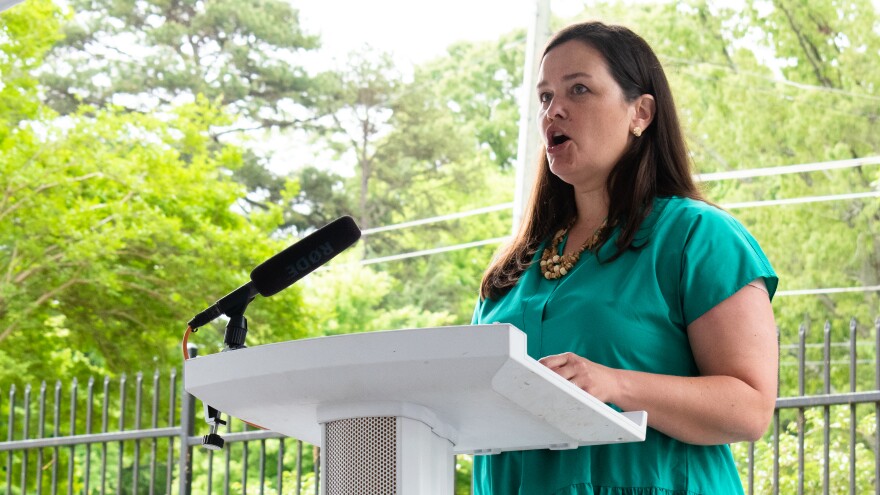Charlotte City Council got its first look at their updated climate plan during Monday’s meeting, their most comprehensive blueprint for reducing municipal emissions.
Every five years, the city of Charlotte updates its plan to reduce carbon pollution and energy usage. This plan is called the Strategic Energy Action Plan, or SEAP.
The updated plan combines some city and community-wide goals. The city would aim to reduce community-wide greenhouse gas emissions 72% by 2035 and reach net-zero by 2050.
“Charlotte has seen a 300% increase in extreme heat days, which poses health risks, especially for vulnerable groups,” said Heather Bolick, Charlotte’s chief sustainability officer. Areas with lower tree canopy are especially susceptible to rising temperatures, according to Bolick.
The council voted unanimously to adopt the original plan in 2018. During Monday's meeting, council members were mostly congratulatory. But council member Dante Anderson asked about the updated climate targets:
“I’ve heard that, ‘The city of Charlotte is moving the target,’” Anderson said. “We’re moving the goalposts as it relates to our goals.”
Bolick responded that the new goals are more ambitious for community-wide carbon pollution reduction and add a new energy generation goal: installing 600 megawatts of renewable energy generation in the next decade. That might include on-site and off-site solar projects or collecting natural gas from city wastewater plants.
However, the updates also reflect the near-term difficulty of electrifying all city vehicles, like Charlotte's first all-electric fire truck.
“It took us almost three years to get that truck,” Bolick said. “And so, we just have to be realistic as well in terms of some of our medium and heavy-duty vehicles. We’re just not going to be able to make that 2030 goal work.”
City Council will vote on the proposed updates in late May. During Monday’s public meeting, some members of the public expressed support for the updates, including 16-year-old Clove Flint Johnson, who said rising global temperatures are a concern both now and for future generations.
“I don’t want this to be the world that my children inherit,” Johnson said. “I don’t want them to have to live with a problem that they didn’t contribute to creating.”



